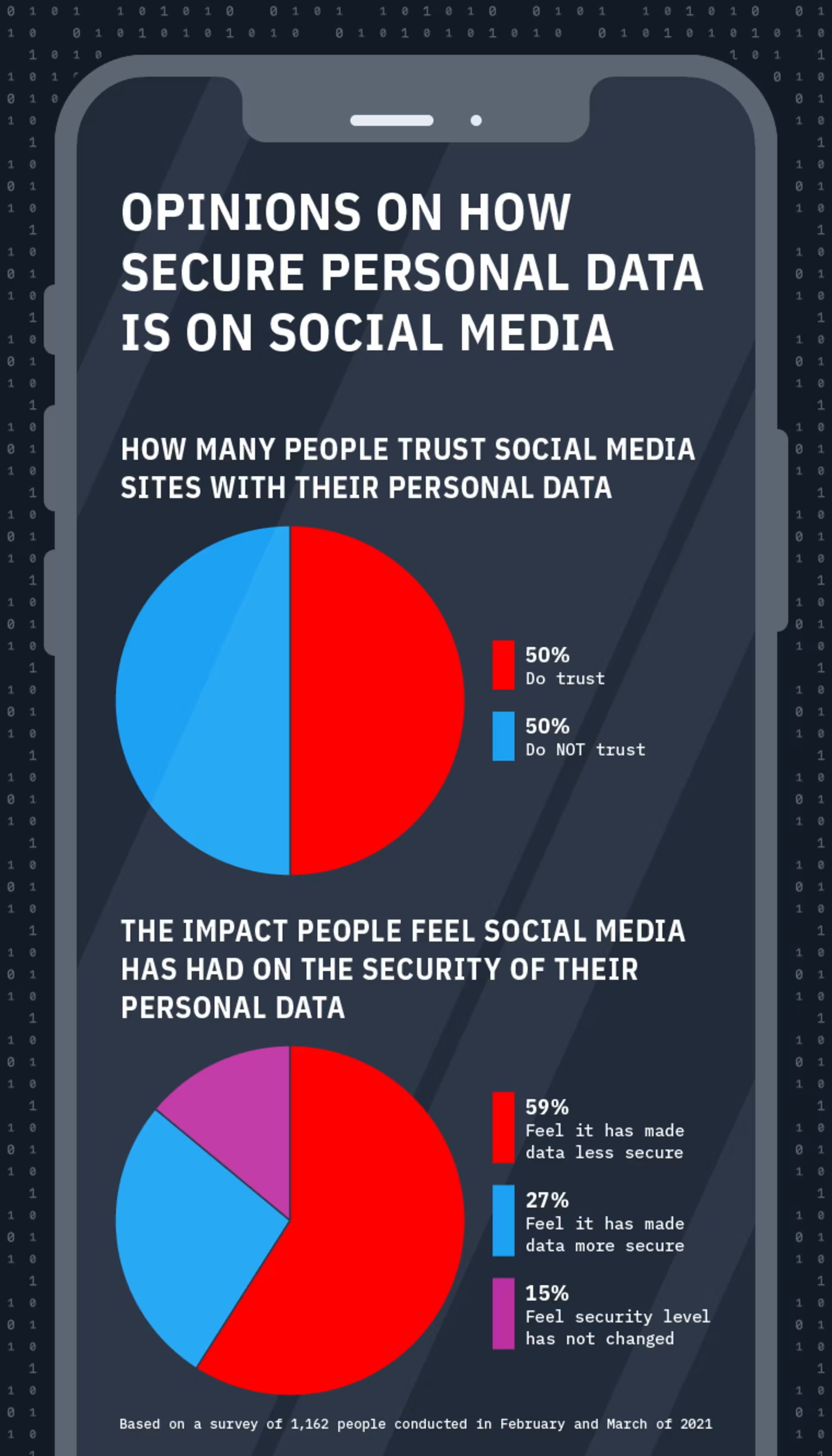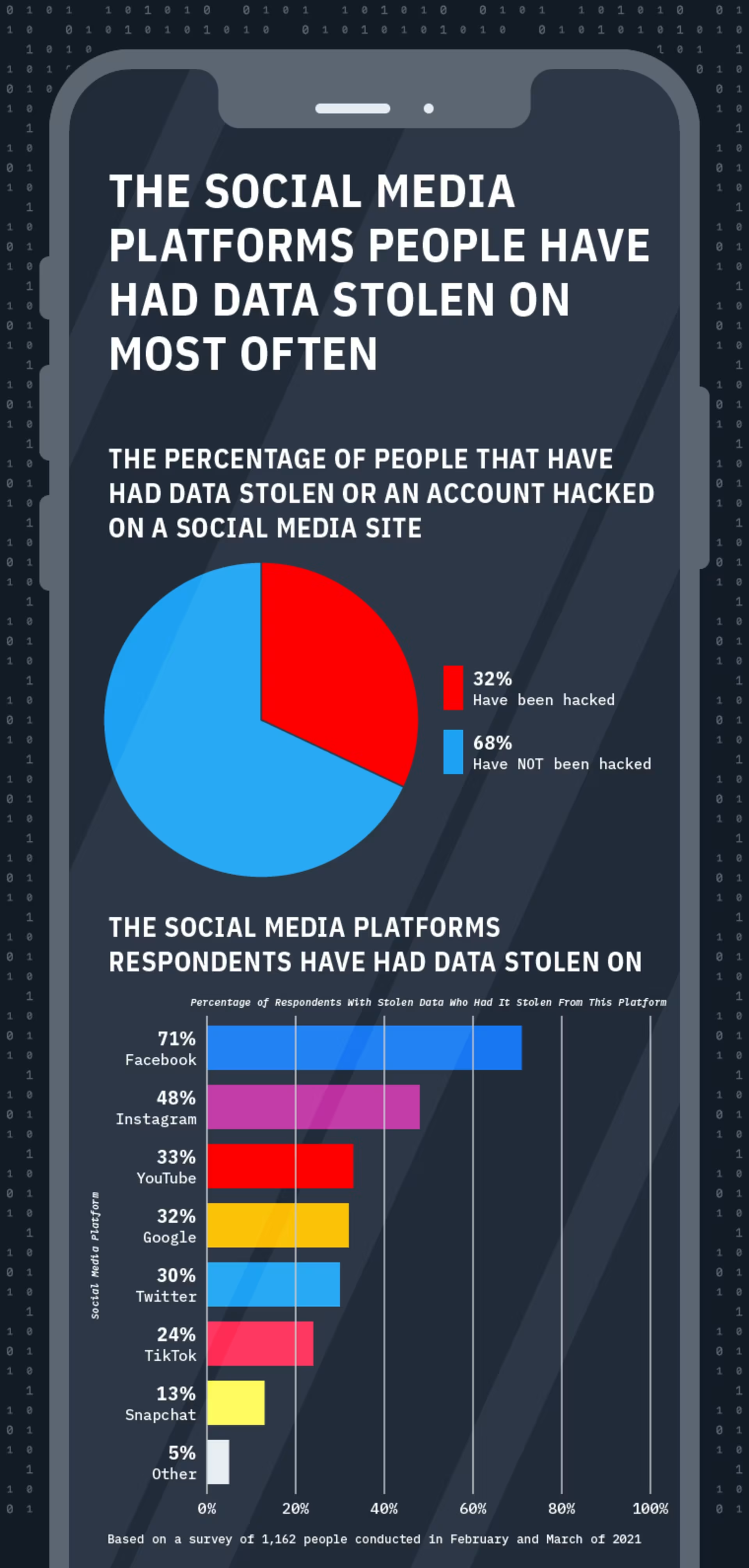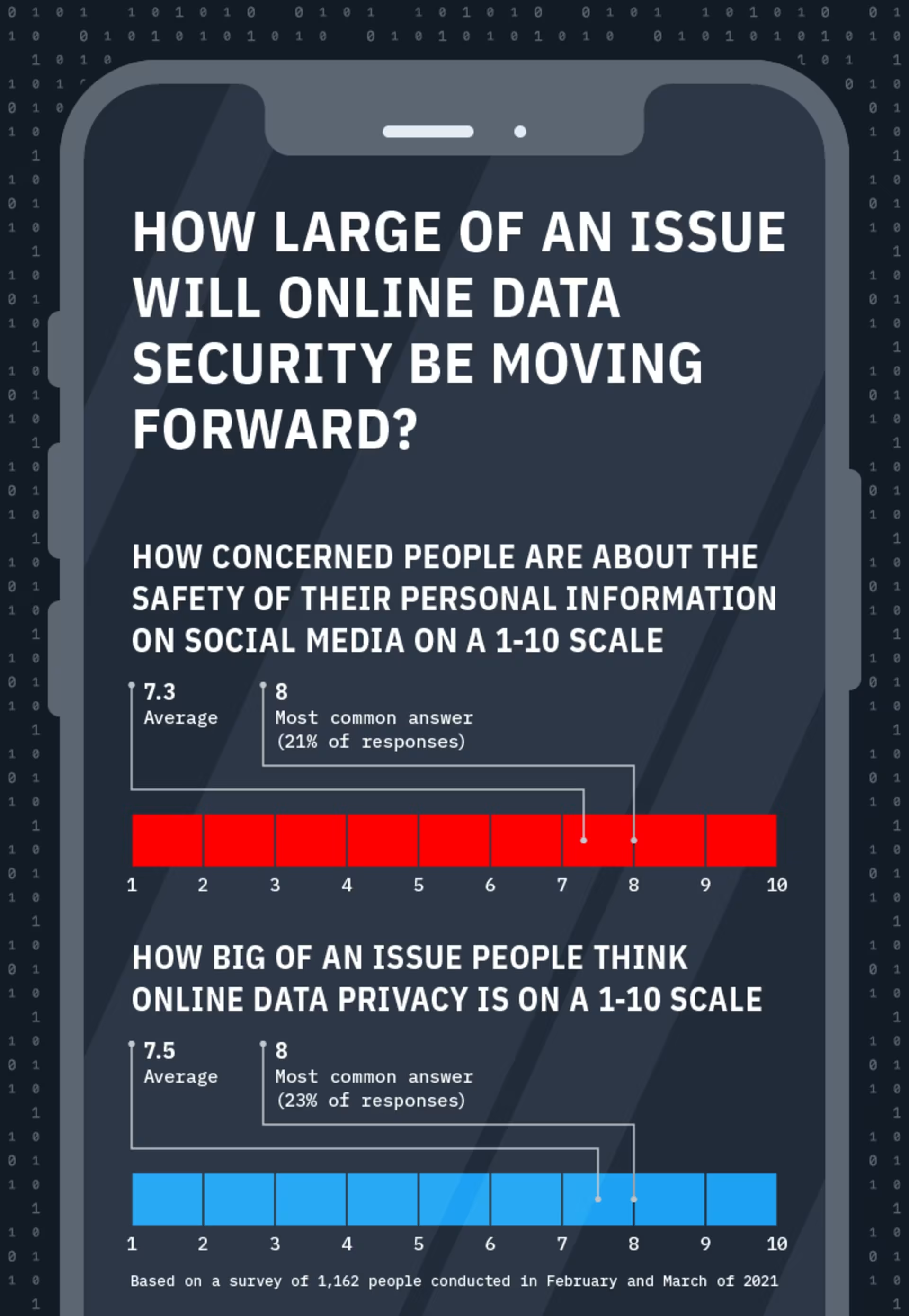Speak with a University Counselor today.
The views and opinions expressed in this article are those of the author’s and do not necessarily reflect the official policy or position of Grand Canyon University. Any sources cited were accurate as of the publish date.
Can you imagine life without social media? Long-distance friendships without regular photo updates on Stories? Weddings and graduations without shared photo albums? Politics without Twitter? Probably not.
Social media is omnipresent in our lives. At Grand Canyon University (GCU), we use different social media platforms to connect, learn and grow. Apps and websites connect our students, faculty and staff who are sharing exciting experiences in and out of the classroom. Our sports teams share highlights and our individual colleges post transformative student resources. Still, as useful as social media is, it also has its drawbacks.
Social media can leave our personal data and information vulnerable to hackers, something which many people have firsthand experience with. Feeling unsafe online can discourage participation and diminish the connective power of social media. It’s a priority to understand how safe people feel online. To further explore, we at GCU, along with help from Grand Canyon Education, decided to conduct a survey to better understand how people feel about the safety of their data on social media.
We surveyed 1,162 respondents to gauge how safe they feel their data is on social media sites, which social media platforms they trust most and least, and which steps they have taken to make their account more secure. After we collected our responses, we analyzed the results to build a series of insights about general opinions on social media safety. Read on to learn more about what we uncovered.

To start, we wanted to get a general sense of how respondents feel about the security of their personal information on social media platforms. This is a great divide in attitudes as there is a 50/50 split between people either trusting or not trusting social media sites.
Next, we asked respondents about the impact that social media has on the security of their personal data overall. More than half of respondents, 59%, report feeling that social media has made their data less secure, and only 15% report that it has not changed the security of their data.

Given the established mistrust of social media platforms by half of respondents, we next wanted to determine the social media platforms respondents trust the most and the least with their personal data. We asked respondents to rate the level of trust they have of the most popular social media platforms on a scale from 1-10, with 10 being the most and 1 the least trusted.
Amazon earned the highest score among all platforms with an average rating of 6.7. Google and YouTube were next with an average rating of 6.1 each, followed by Twitter with a score of 5.7. TikTok earns the lowest average trust rating of only 4.3. TikTok has indeed received its fair share of media scrutiny about its susceptibility to hacking,(See disclaimer 1) perhaps fueling the feelings of mistrust many respondents feel toward the app.
With relatively low overall safety ratings from users across the board, we were surprised social media apps continue to have such widespread use. Therefore, we decided to get a better understanding at how individual users protect themselves while using social media.

If individuals feel unsafe on social media, many take on the personal burden of maintaining their online safety in a variety of ways. The most common strategies respondents employ to stay safe are only adding known personal contacts as friends or connections on social media apps (59%) and manually reviewing social media platforms’ privacy settings (59%). Surprisingly, only 35% of individuals log out of different websites after use and only 45% of users use unique passwords for social media accounts.

On the other hand, people tend to be protective of their children’s social media usage. One in four respondents report that they do not allow their children to have social media accounts. And yet, whereas most individuals review their own privacy settings manually, only 18% of parents whose children use social media actually go check their children’s privacy settings.
Protecting children from hacking or unsafe contact on the internet is becoming a bigger part of the national conversation, and with such low individual regulation by parents, perhaps security advising at a larger level may be worth pursuing to keep children safe.

However safe we are on social media, hackers are always two steps ahead of most users. Therefore, we wanted to know which apps individuals had been hacked on most often.
Overall, only one in three respondents report that they had been hacked on social media, a number far lower than other commercial data hacking we often hear about in the news. However, that statistic was not spread evenly across platforms. In fact, seven out of 10 individuals who had been hacked on social media experienced their hacking on Facebook, a staggering number considering that about 70% of Americans use the site.(See disclaimer 2)

So what do people do when they get hacked or when they have any major privacy concern for that matter? Almost half of the individuals surveyed have deleted social media accounts out of concern for privacy, with Facebook and Instagram being the most frequently deleted apps.
With such high rates of deletion for privacy concerns, it is clear that customer privacy and online safety should be a top priority for social media companies who make more money from high numbers of active users. For many individuals, the question of whether companies will actually work to improve privacy is very important.

So, where does all this leave us? With customers reporting strikingly high frequency of social media hacking despite cautious habits and even app deletions, there is still a general attitude that social media usage is unsafe.
This sentiment is best proven by responses to our final questions about popular opinion on safety and societal concern for social media security. On a scale from 1 to 10, respondents rank their concern for personal security on social media at an average of 7.3 points. Concern for societal importance of social media security averages an even higher 7.5 points.
Altogether, the results of our survey on social media data privacy show that Americans are worried about the security of their online data. They practice safe habits like smart password maintenance and manually setting reviews with varied levels of frequency, and review the safety of their children’s social media accounts even less. As a result, many have been hacked leading to account deletion and a concern for online safety in our society.
Despite these grim statistics, it’s true that social media is only becoming a larger force in all of our lives, careers, educations and civil societies. And so, it’s crucial that individuals develop the skills to build better, safer social media networks. Apple has taken a step in helping users understand data privacy by commemorating Data Privacy Day back on Jan. 28 with a transparent report on how companies track user data, along with rollouts of new privacy features on their latest iOS systems.(See disclaimer 3)
For those looking to better understand social media privacy and shape social media into a safe, connective tool, GCU has a range of online and in-person computer science and IT degree options. Our graduates go on to use their computer science knowledge to shape our digital world. Will you be the answer to our need for social media safety?
(See disclaimer 1)Retrieved from CNBC, “A security flaw in China’s TikTok app was found. It lets hackers use text messages to control accounts.” in April 2021
(See disclaimer 2)Retrieved from Pew Research Center, “Social Media Fact Sheet” in April 2021
(See disclaimer 3)Retrieved from Apple Newsroom, “Data Privacy Day at Apple: Improving transparency and empowering users” in April 2021
